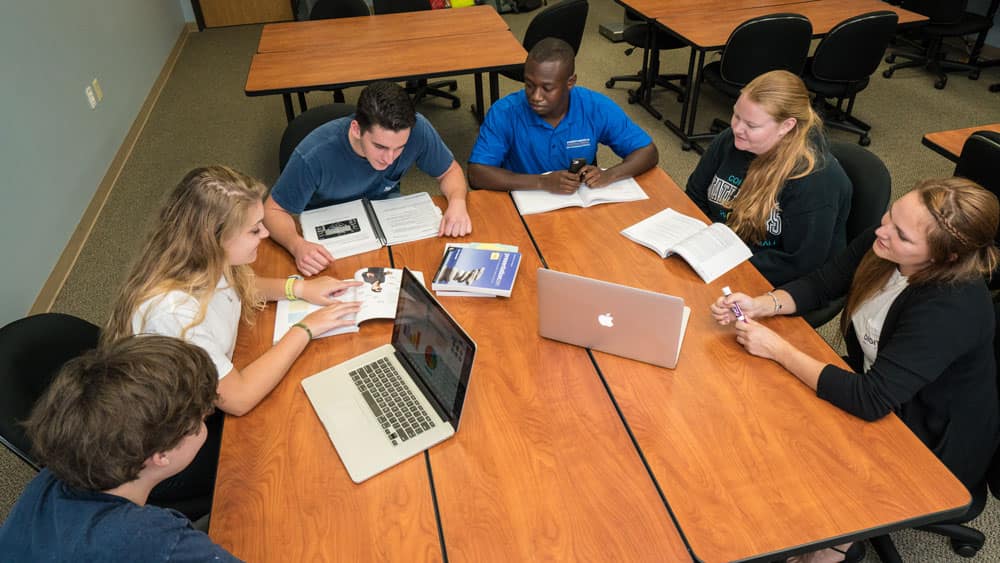Digital Studio Helps Students Develop Multimedia Skills

Located on the Daytona Beach Campus in Mod 22, the Digital Studio is a place where students can work with tutors to create videos, slideshow presentations, podcasts and graphics for projects.
During the 2015-16 school year, more than 500 students and 20 faculty members from various departments received support from the Digital Studio.
Lucas Weakly, a student of Oler’s and former tutor at the studio, documented a bike rack area outside his dorm for the tiny ecology project. The end result was a series of videos that showed the subtle changes of the space and made recommendations for how students could better utilize the area.
“The Digital Studio has been tremendously helpful for my students,” Oler said. “Several of them visited this semester and got help on several stages of their presentations, ranging from pre-planning to technical assistance. Overall, my students’ presentations were better than they were in the past.”
In 2014, Embry-Riddle’s Task Force on Innovation began exploring the possibility of opening a Digital Studio at the Daytona Beach campus to provide an on-site tutoring space where students could access digital technologies. Student tutors, with experience in digital technologies, set appointments to help with a range of requests such as helping piece together narratives for film, replacing essays with podcasts, making slideshows more engaging and designing infographics.
“This is not a place that just serves one area of campus,” said Lori Mumpower, interim director of the Digital Studio. “We help students develop their presentation skills and everything they are learning can be applied in the real world.”
Caitlyn Rymarchyk, a senior earning her bachelor’s degree in Unmanned Aircraft Systems, is a student tutor who works at the studio two days a week. Most recently, she had helped a student put together a video about a Study Abroad trip to the Canary Islands.
“I think what students learn here can really be applied to any career,” she said. “If you can communicate your ideas clearly in a visually appealing way, it’s really effective and your audience will take more away from it.”
The Digital Studio also encourages faculty to create innovate assignments that go beyond traditional essays so that students can apply their knowledge to real-life scenarios.
Sally Blomstrom, associate professor of Humanities and Communication, worked with the studio on an assignment that required students to produce audio tours for the A. Jewell Shock Museum of Natural History in Nebraska. The students wrote interactive scripts and recorded MP3 files about various wildlife species and provided scientific background for audio tours that are currently being used at the museum. The goal of the project was to promote STEM literacy, Blomstrom said.
“It’s a win for students because they have an audience, and with the help of the Digital Studio they were able to produce a higher-quality recording,” Blomstrom said.
